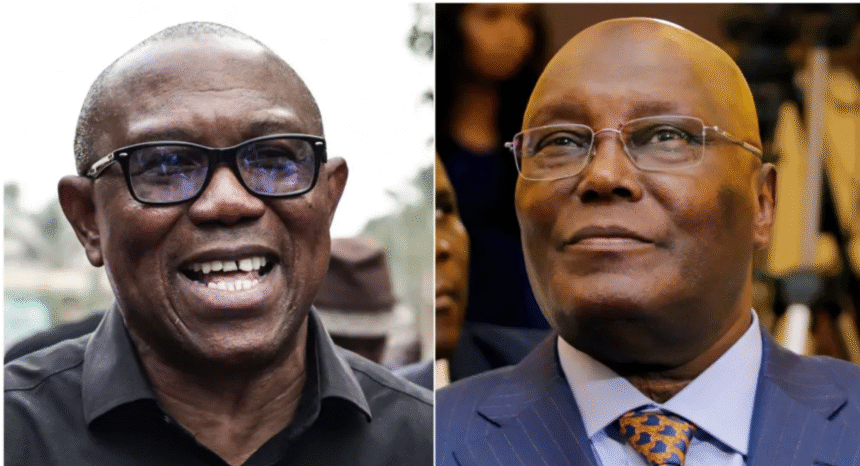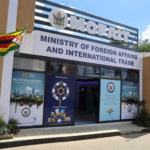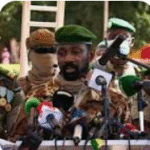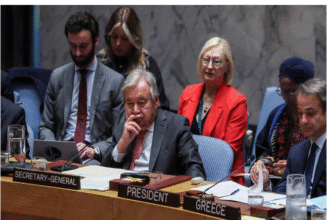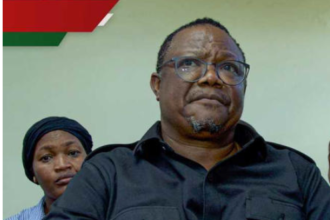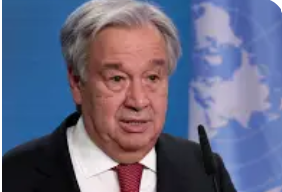By Abu Hassan
Abuja, Nigeria – In a dramatic move that could reshape the Nigerian political landscape, leading opposition figures Atiku Abubakar and Peter Obi have joined forces under a new political banner, the African Democratic Congress (ADC), to challenge President Bola Tinubu and his ruling All Progressives Congress (APC) in the 2027 elections. The announcement marks one of the most significant political realignments since the end of military rule in 1999.
The move sees both Abubakar, formerly of the People’s Democratic Party (PDP), and Obi, who led the Labour Party (LP) in the 2023 election, break away from their previous parties to unite under the ADC. The new party also boasts the support of several political heavyweights defecting from the APC, including former Kaduna State Governor Nasir El-Rufai and former Transportation Minister Rotimi Amaechi.
United Front Against Incumbent
The formation of the ADC is the culmination of months of discussions between the leaders, driven by a desire to avoid a repeat of the 2023 election outcome. In that contest, Tinubu secured victory with only 37% of the vote, while Abubakar and Obi split the opposition vote, garnering 29% and 25% respectively. Obi’s decision to leave the PDP stemmed from the party’s choice of Abubakar as its presidential candidate.
Speaking at the unveiling of the ADC, interim chairman and former Senate President David Mark emphasized the party’s mission to “save the country’s democracy” and prevent Nigeria from becoming a one-party state. He also alluded to internal crises plaguing both the PDP and LP, which some believe were orchestrated by external forces.
“Both Atiku [Abubakar] and Obi felt they came so close in 2023 and would have maybe won on a joint ticket, so they want to amend their mistake by working together this time around,” political analyst Shehu Iliyasu told the BBC, highlighting the pragmatic motivation behind the alliance.
The Faces of Change?
Atiku Abubakar and Peter Obi are undeniably the driving forces behind the ADC. While candidate nominations are still years away, speculation is rife that Abubakar, 78, will make his fifth bid for the presidency, with Obi, 63, potentially serving as his vice-presidential running mate.
2027: A Different Outcome?
The question on everyone’s lips is whether the ADC can pose a credible threat to the incumbent APC in 2027. Analyst Ben Kenneth believes the united front significantly improves the opposition’s chances. “If you look at what Atiku and Obi got in the last election, it’s clear to see that they would’ve won assuming they worked together, so it’s a good thing they have realized they need each other,” he stated.
However, Sani Hamisu offers a counterpoint, arguing that incumbency provides Tinubu with a significant advantage. “In Nigeria and Africa, when a leader is in office seeking a second term, he hardly loses, it is very rare and that’s why I feel Tinubu has a better chance now than when he wasn’t in office in 2019,” Hamisu argued.
Ruling Party Unfazed?
Despite the magnitude of this political shake-up, the ruling APC maintains a dismissive stance. Acting chairman Ali Bukar Dalori told BBC Hausa that the coalition presents no real threat. “Nobody is talking about a coalition except in Abuja. Even in Abuja, they are in a hotel, and when they are defeated in elections, they will leave the country,” he asserted.
PDP and LP Remain Aloof
While the ADC is gaining momentum, the PDP, the country’s largest opposition party, has ruled out joining the coalition, opting to challenge the APC independently. The Labour Party has also reiterated its commitment to remaining a separate entity, urging its supporters to remain steadfast.
The formation of the ADC has undoubtedly injected a new dynamic into Nigerian politics, setting the stage for a potentially fierce battle in the 2027 elections. Whether the united opposition can overcome the power of incumbency remains to be seen, but the political landscape has been irrevocably altered.


